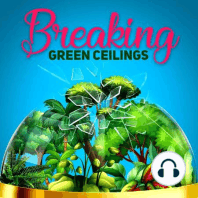3 min listen

EP 63: The Power of Indigenous Storytelling (Pt1)
EP 63: The Power of Indigenous Storytelling (Pt1)
ratings:
Length:
42 minutes
Released:
Nov 1, 2022
Format:
Podcast episode
Description
In this first episode of a two-part series, we will be talking about The Whale Child, a book written and illustrated by Indigenous authors Keith and Chenoa Egawa. Keith and Chenoa are siblings and enrolled members of the Lummi Indian Nation, and of Japanese heritage. Keith Egawa is a graduate of the University of Washington’s Creative Writing program and author of the novel Madchild Running. Keith’s extensive work experience in the fields of Child and Family Services and Indian Education Reform has provided him with both inspiration and insight into his subject matter.Chenoa Egawa holds a BA in International Business and Spanish from the University of Washington. In addition to being a writer, Chenoa is an activist for Indigenous communities and the environment, a ceremonial leader, medicine woman, singer, storyteller, and artist dedicated to bringing healing to our Mother Earth and people of all origins. The Whale Child is an inspiring book that introduces young readers to the environmental challenges facing the planet through the eyes of Coast Salish characters and authors. It is a story about two children: a young whale and a little girl. Her task is to follow the whale child as he shows her the threats of pollution and global warming to water and thus to all interconnected life and creatures on Earth. The book is a reminder of our severed and hurt relationships with nature. We were born with connections to nature. But as we grow older, we get socialized away from nature, which takes us away from our essence, who we really are. According to the authors, there is nothing wrong with awareness. We do not need to be afraid. We need to recognize what is going on, and realize that we still have the power to change the situation. Turning our backs and being afraid to look at the truth will not help us to overcome anything. Facing the reality of what is going on, whether it is within or around us, is part of the healing that we all came here to do. And now, perhaps, if we can come together and recognize our common humanity, we can see that together we can make these changes. It is on us to find a way to respect nature wherever we are.Episode HighlightsI remember the stories that our great-grandmother would tell us. There was sadness in me because I thought about how those days are gone and these stories are, somehow, disappearing in this new world.We wrote The Whale Child honoring the memory and realizing that these things are not gone, that we can remember them at any time. And if we breathe that life back into them, they are waiting for us. All of nature is alive, and the spirits of the stories are not just legends and myths. They are living, breathing, alive hearts of this world in which we live. Every child has a special gift for society as a whole, for our community, and our family to be whole and fully expressed. Each person needs to contribute their unique genius or unique gift that they came to bring to the whole. There is this remembering and forgetting that we go through when we come to this Earth. We have responsibility. We have a voice. And we are taught to use it in a helpful way and a way of being of serviceLet’s be hopeful for our children. Let’s talk to them about what is happening so we can come up with some changes and solutions that can ensure a good life for them, their children, and their grandchildren.There are no borders in nature. It is all connected. We are all part of the global ecosystem. Contact information and other Resources:Keith Egawa is a graduate of the University of Washington’s Creative Writing program and the author of the novel Madchild Running (Red Crane Books Inc. 1999). Egawa’s extensive work experience in the fields of Children and Family Services and Indian Education Reform has provided him with both inspiration and insight into his subject matter. Egawa has been awarded several artists’ grants, including the ARTs Up grant through the Seattle Arts Commission, which was used to conduct a s
Released:
Nov 1, 2022
Format:
Podcast episode
Titles in the series (63)
Breaking Green Ceilings Podcast - Intro Episode: In this introduction I share a little bit about myself and why I started the podcast. I’m excited about this new journey that I’m about to embark on because I really think it will help make the environmental movement more inclusive. by Breaking Green Ceilings